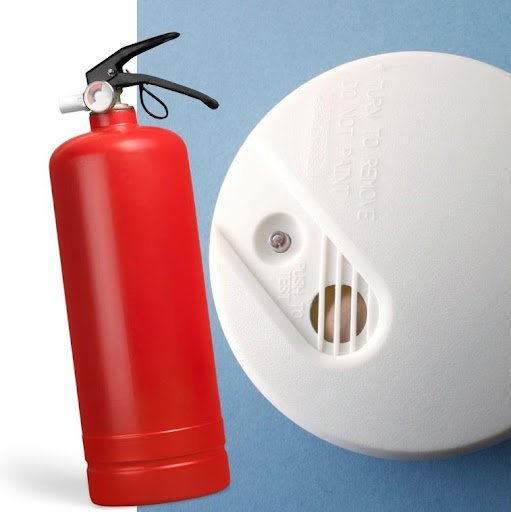9 Things You Should Do Before Moving Into Your New Home
If you are anything like me, after buying a new house, all I want to think about is where will I place the couch? What picture will look good on that wall? How will I organize my daughter’s playroom? However, I encourage you to stop for a moment and consider a few mundane items that can have a huge impact on how well you will settle into your new home. Glamorous they are not. In fact, when your friends and family come over to see your new home, they will not even notice. But when something goes wrong because you overlooked these simple tasks, they can become apparent to everyone.
Change the Locks
This sounds obvious, but you would be surprised how often this is not done. After all, you really don’t know who else has keys to your home. Does the neighbor’s son have a key from when they watched the previous homeowner’s cat? How about a contractor that recently completed a project at the house? Perhaps a family member from two owner’s ago? It is hard to know, so change the locks. That ensures you’re the only person who has access.
Install new deadbolts yourself for as little as $10 per lock, or call a locksmith — if you supply the new locks, they typically charge about $20 to $30 per lock for labor. Bonus tip…it can be frustrating if the current locks do not operate from the same key. A locksmith can key all the locks in the house to operate from a single key.
2. Check for Plumbing Leaks
Your home inspector should do this for you before closing, but it never hurts to double-check since there is a period of time that passes between the inspection and closing. Keep an eye out for dripping faucets and running toilets, and check your water heater for signs of a leak.
While these are signs of what could be a growing problem, the financial impact can be more significant than you realize. Catching potential issues early can prevent a lot of heartache.
Here’s a neat trick: Check your water meter at the beginning and end of a two-hour window in which no water is being used in your house. If the reading is different, you have a leak.
3. Steam Clean Carpets
Cleaning carpets is always easier when there is no furniture to work around! Not to mention, why not start your life in your new home with a fresh start. You can pay a professional carpet cleaning service — you’ll pay about $50 per room; most services require a minimum of about $100 before they’ll come out — or you can rent a steam cleaner for about $30 per day and do the work yourself. Even better is if you have a friend or relative that has a steam cleaner you can borrow! If you decide to go with a professional cleaner, be sure to ask about specials they are running.
4. Wipe Out Your Cabinets
Another no-brainer before you move in your dishes and bathroom supplies. Make sure to wipe inside and out, preferably with a non-toxic cleaner, and replace contact paper if necessary. There is nothing worse than finding an unpleasant surprise: Mouse poop. Which leads me to my next tip …
5. Evict rodents and pests
That includes mice, rats, bats, termites, roaches, and any other uninvited pests that have taken up residence. There are any number of DIY ways to get rid of pests, but if you need to bring out the big guns, an initial visit from a pest removal service will run you $100 to $300, followed by monthly or quarterly visits at about $50 each time. If they are not present now, keep an eye out for signs of them as the seasons change. They may be looking for a shelter as the weather fluctuates.
6. Introduce Yourself to Your Circuit Breaker Box and Main Water Valve
Often, when the time comes that you interact with your circuit breaker box, it is due to some type of outage or problem. Knowing that your panel is appropriately labeled will give you the peace of mind that you can proceed safely.
It’s a good idea to figure out which fuses control what parts of your house and label them accordingly. If they are already labeled, it doesn’t hurt to check them. This will take two people: One to stand in the room where the power is supposed to go off, the other to trip the fuses and yell, “Did that work? How about now?”
You’ll want to know how to turn off your main water valve if you have a plumbing emergency, if a hurricane or tornado is headed your way, or if you’re going out of town. Just locate the valve — it could be inside or outside your house — and turn the knob until it’s off. Test it by turning on any faucet in the house; no water should come out.
7. Clean Ducts
Having the ductwork professionally cleaned can be beneficial, especially if you contend with allergies. You never know when it was done last and what type of lingering odors from smokers, pets and the dust from everyday living that could be trapped in the ductwork. While you’re at it – replace the furnace filter too!
8. Fire Safety
Don’t wait for the annoying beeping sound…. change the batteries in smoke detectors. This simple task has proven time and again to save lives. Isn’t the cost of a few batteries worth the benefit of notifying your loved ones when there is a dangerous situation. Some fire detectors include a carbon monoxide detector as well. If yours do not, you can find carbon monoxide detectors that plug into an outlet in your home at a home improvement store.
If your new home does not have fire extinguishers invest in some. Place in key locations that are prone to fires…garages and kitchens. Lastly, take the time to identify escape routes and be sure your children and loved ones know what to do and where to go in the event of a fire.
9. Review your home inspector's report
Can't find your inspector's report? Give your real estate agent a call—but don't wait until something goes wrong to pull them out. A good home inspector will outline the most important issues in their report, so use their expertise as a guide for your first few days of ownership. If they've marked anything as particularly pressing, make sure to handle it before moving in.
Buying a new home is an exciting endeavor! Ensure the long-term satisfaction of your purchase decision by taking these precautionary steps. Welcome Home!





